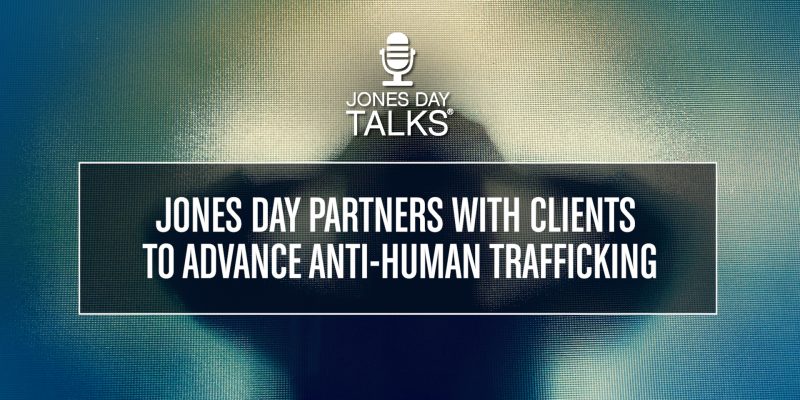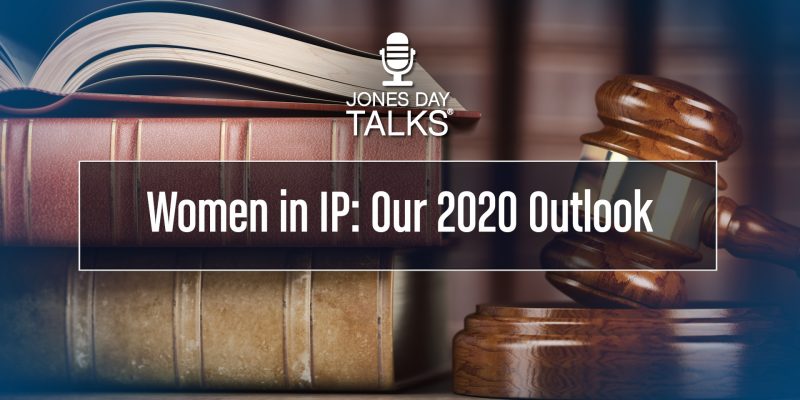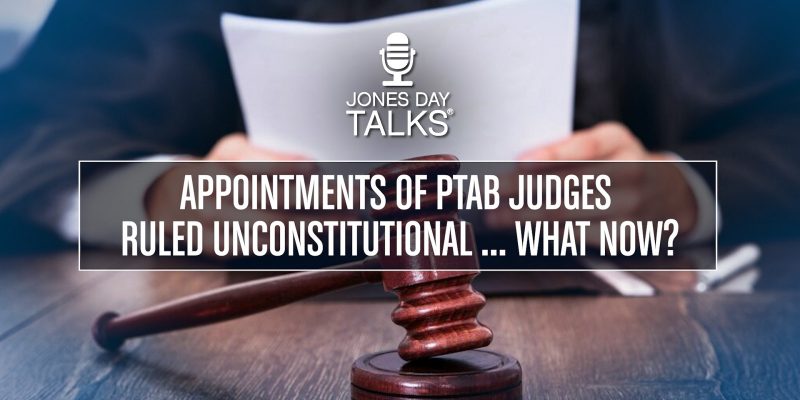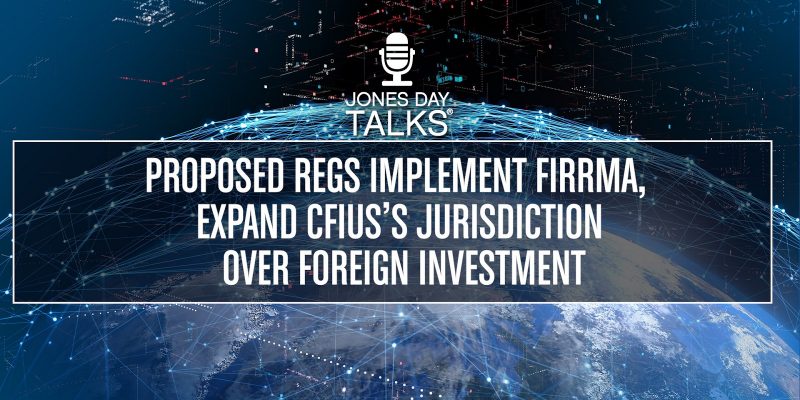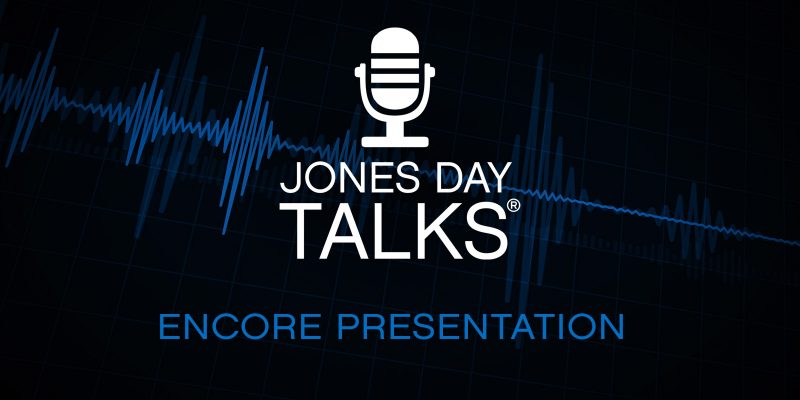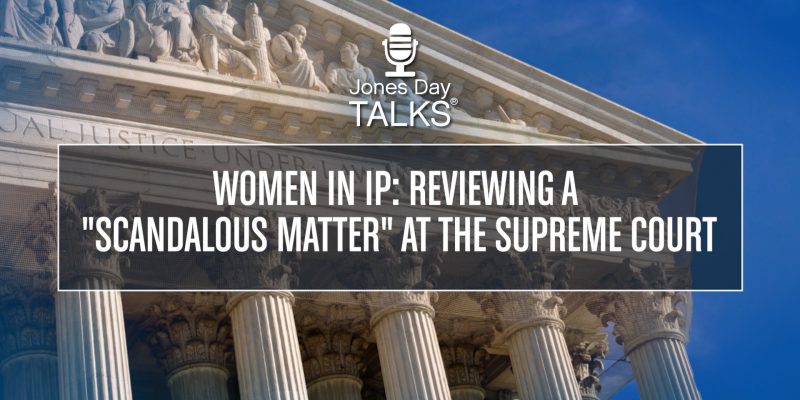Jones Day’s global anti-human trafficking initiative promotes unprecedented collaboration between our Firm, our clients, law enforcement, governments, and other organizations to detect, uncover, prevent, and prosecute crimes involving the sex trade, forced labor, and similar exploitation.
In observance of National Human Trafficking Awareness Month, partners Laura Ellsworth and Bethany Biesenthal discuss what Jones Day’s anti-trafficking pro bono efforts have accomplished, and talk about the Firm’s objectives moving forward.
Read the full episode transcript on the Jones Day website.
Podcast: Play in new window | Download
Subscribe: RSS
